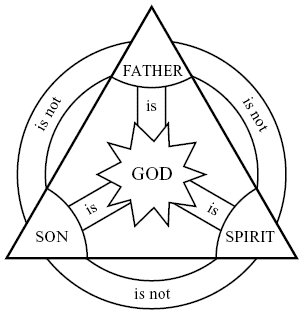Is Jesus God? 5 Lines of Biblical Evidence
The question, ‘Is Jesus God?’ is the most consequential one in human history. If the Bible is right—that Jesus Christ is God, no less, that reality must reorient everything for us. Our entire worldview, our priorities, our life purpose—all of these must revolve around Him as the cosmic centre. But how can we know for sure? Join us as we examine five major lines of biblical evidence that powerfully demonstrate Jesus’ deity.
Fulfilled Prophecies Prove Jesus is God: Over the centuries, scores of meticulous prophecies in the Hebrew scriptures foretold the coming of the Messiah. The mind-boggling specificity of these predictions, and Jesus’ perfect fulfilment of them, defy naturalistic explanations.
READ ABOUT THESE ASTOUNDING MESSIANIC PROPHECIES HERE
Of the 300-odd Old Testament prophecies that Jesus fulfilled, here are a few: The Messiah would be born in Bethlehem (Micah 5:2), of the line of David (Jeremiah 23:5), preceded by a messenger (Isaiah 40:3), rejected by His own people (Isaiah 53:3), pierced for our transgressions (Zechariah 12:10), and betrayed for 30 pieces of silver (Zechariah 11:12). The statistical improbability of one man fulfilling these many prophecies is staggering evidence Jesus was no mere man, but God Himself.
The Unparalleled Character of Jesus: The more we get to know someone intimately over time, the starker their faults and imperfections become. There is only one person in all of history of whom this cannot be said—Jesus Christ. The more we get to know Him, the more in love with Him we become. The men who knew Him best during His earthly life, the apostles Peter and John, vouched for His character as being utterly pure, sinless, and divine (1 John 1:1, 2 Peter 1:16-17).
Remarkably, the Holy Spirit has carefully recorded for us also the verdict of the very man who unjustly sentenced Jesus to death—Pontius Pilate. In a stunning declaration, this Roman governor stated, “I find no guilt in Him” (John 19:4). Pilate could discern no fault, sin, or flaw in Jesus worthy of execution, even as the fickle crowd demanded His crucifixion.
Jesus’s integrity, wisdom, and moral perfection are unparalleled in history. Those who knew Him up close attested to His impeccable character. Consider this: if Jesus was indeed the Son of God, He’d have to pass the test of character—and how well He did! His was a perfect life, untainted by sin, unlike any other. The more they saw of Him, the more convinced they were He was holy, harmless, undefiled, and separate from sinners as Scripture declares (Hebrews 7:26).
The Miraculous Power and Authority of Jesus: Another powerful evidence backing Jesus’ identity were the astonishing miracles He performed—signs as the Bible calls them, of His divinity. These acts demonstrated His complete sway over the created order.
Jesus displayed authority over nature by calming a raging storm at sea with just a word (Mark 4:35-41). He exerted authority over sickness and disability, healing a man born blind (John 9:1-7), cleansing leprosy (Matthew 8:1-4), and curing every kind of disease (Matthew 4:23-24).
Jesus also exercised authority over the spiritual realm, driving out demons and evil spirits with just a command (Mark 5:1-20). He showed authority over resources by miraculously multiplying a few loaves and fish to feed thousands (Matthew 14:13-21; John 6:1-14) and turning water into wine at Cana (John 2:1-11).
Jesus also exercised authority over people, miraculously transforming broken lives over single redemptive encounters (e.g. Zacchaeus in Luke 19, the Samaritan woman in John 4, the demon-possessed man in Mark 5). Then and now, Jesus remains in the business of transforming lives, taking wretched addicts and sinners, making them a new creation, with growing Christlikeness.
Most astoundingly, Jesus demonstrated authority over life and death itself. He raised Lazarus from the tomb (John 11:38-44). Then, in ultimate confirmation of His claims, Jesus was raised from death in bodily resurrection—the first fruits of the new creation (1 Corinthians 15:20-23). His miracles gave supernatural validation to His divine claims and identification as the Son of God.
Eyewitness Testimony to Jesus’ Deity: Repeatedly, others bore witness to Jesus being God. At His baptism, God the Father announced “This is my beloved Son” as the Spirit descended upon Him (Matthew 3:16-17). The Roman centurion witnessed the supernatural events surrounding Christ’s death (Matthew 27:54)—the mid-day darkness, earthquake, torn temple veil—and all of this likely prompted this Gentile outsider, too, to affirm Christ’s deity. The disciple Thomas, having witnessed the risen Christ, addressed Him as “My Lord and my God!” (John 20:28). The disciples collectively bowed and worshipped the risen Jesus before His ascension (Matthew 28:17). As the disciples bowed before Christ, an act Jews reserve solely for the Eternal One, their worship transcended mere reverence for a teacher. It was an undeniable recognition of the deity standing in their midst. Remember, no God-fearing Jew would dare render such adoration to a fellow human.
The Capstone Evidence—Jesus’s Resurrection While Jesus pointed to His authoritative teaching, sinless life and miracles as evidence of His divinity (John 5:36), He presented His resurrection as the ultimate evidence. If this event could be confirmed, then Jesus’s claim to be God would be proven. The gospels and epistles relate detailed, multi-sourced eyewitness accounts of Jesus’s tomb being found empty, His post-resurrection appearances to over 500 people, and His bodily ascension into heaven. Attempts to explain this event naturally fail—the sheer evidence led sceptics like James the Lord’s brother to worship Jesus as God. The resurrection remains the towering miracle proving Jesus’s divine identity.
READ MORE ABOUT THE RESURRECTION HERE
No other religious figure combines Jesus’s fulfilled prophecies, perfect character, astonishing miracles, divine self-claims affirmed by others, and conquering of death. On the strength of these evidences, the unbiased truth-seeker cannot but conclude Jesus Christ is fully God and worthy of our wholehearted allegiance.
Related Reads
Editor's Pick

Prevenient Grace: 5 Reasons the Doctrine Fails
Can a spiritually dead person choose God? It’s one of the oldest questions in Christian theology. And how we answer [...]

Why Do People Hate the Doctrine of Election?
…WHEN THEY REALLY SHOULDN’T Few Bible doctrines provoke stronger reactions than election. The idea that God chose some for salvation [...]

The Doctrine of Providence: Does God Really Govern All Things?
You’re sitting in the doctor’s office when the diagnosis lands like a thunderclap. Your mind races: Why this? Why now? [...]
SUPPORT US:
Feel the Holy Spirit's gentle nudge to partner with us?
Donate Online:
Account Name: TRUTHS TO DIE FOR FOUNDATION
Account Number: 10243565459
Bank IFSC: IDFB0043391
Bank Name: IDFC FIRST BANK






